Published Jan 17, 2020
The Star Trek No Cry Challenge
Can you make it through the saddest episodes of the franchise?
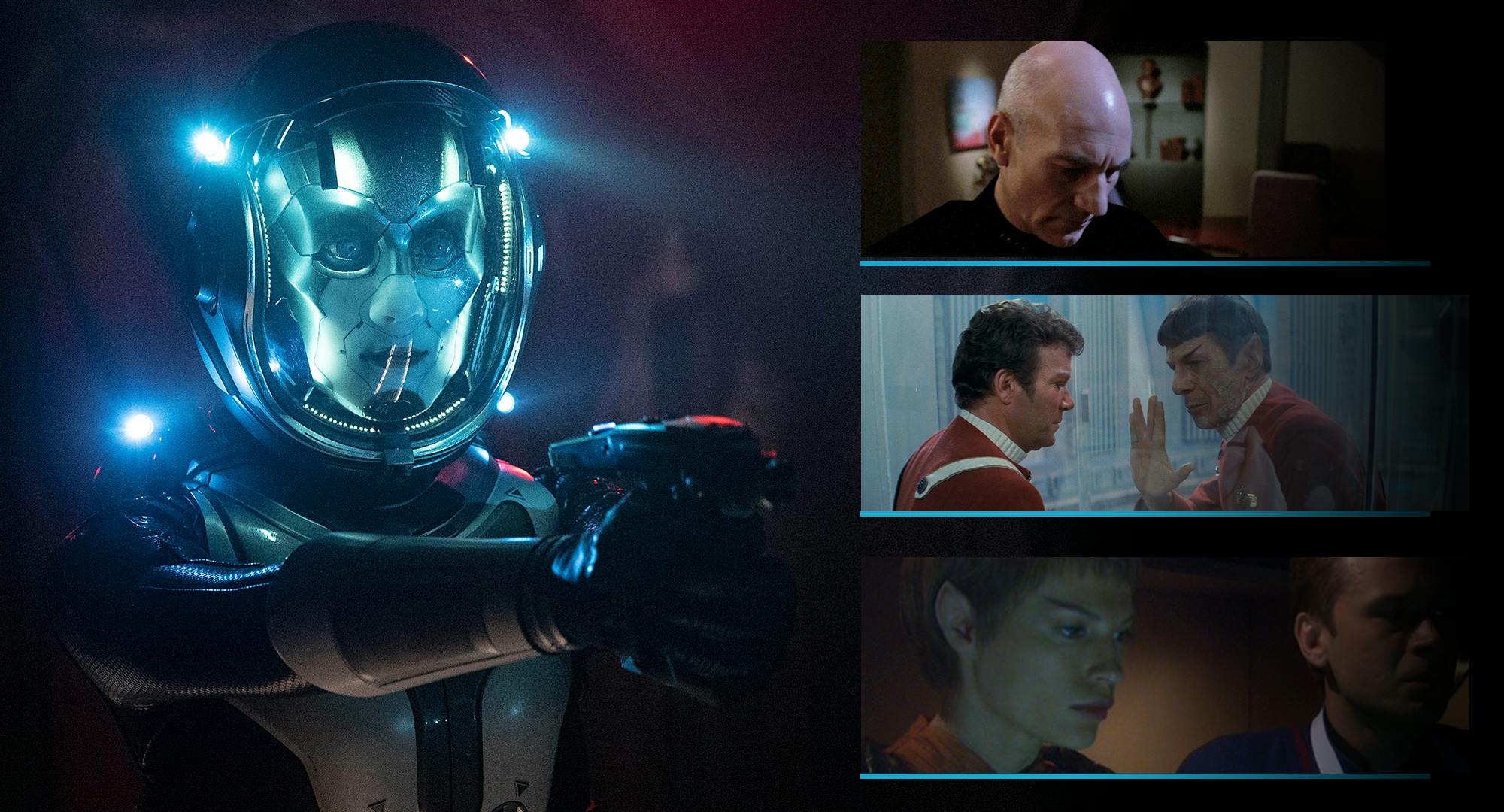
StarTrek.com
Are you tougher than a house of Klingon warriors? Do you have more emotional control than a Vulcan? If your answer to either of these questions is “yes,” then the Star Trek: No Cry Challenge is for you. Star Trek fans know that exploring strange new worlds can sometimes bring tears and heartache. Can you get through these episodes without crying? First one to break buys a round at Quark’s!
Beginner Level: Set phasers to sad
Star Trek: Voyager, “Imperfection”
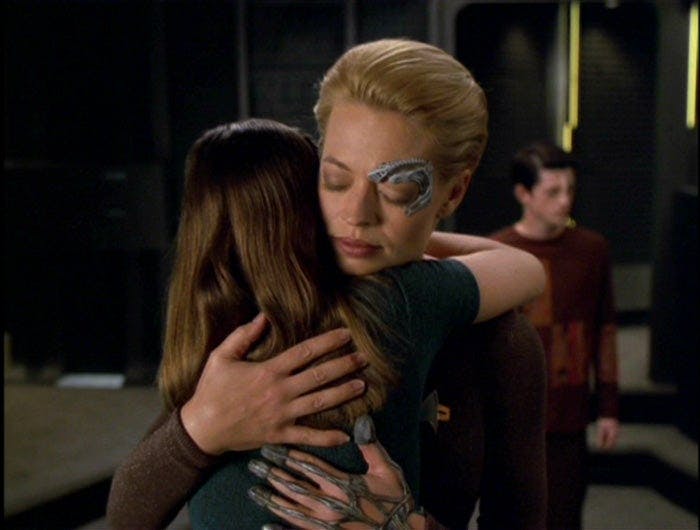
StarTrek.com
This episode of Voyager tugs on the heartstrings immediately. The youngest Borg kids leave Voyager but not without encircling their surrogate mom Seven of Nine in a group hug. Even Janeway wraps a comforting arm around her as the kids beam away. The main plot is also filled with melancholy moments. Seven contemplates her mortality as her cortical node fails. She shares her anxieties with B’Elanna, wondering if anyone will remember her when she’s gone. In Astrometrics, Seven apologizes to Janeway for not developing enough as an individual despite the captain’s mentorship. Janeway, her voice trembling with emotion, reassures Seven that she has grown into an “extraordinary individual” and friend. To top it all off, the episode ends with Seven crying real tears over Icheb in sickbay after he endangered his own life to save hers. A former Borg cries twice in this episode. How much sadder can Voyager get?
Star Trek: The Next Generation, "The Inner Light"
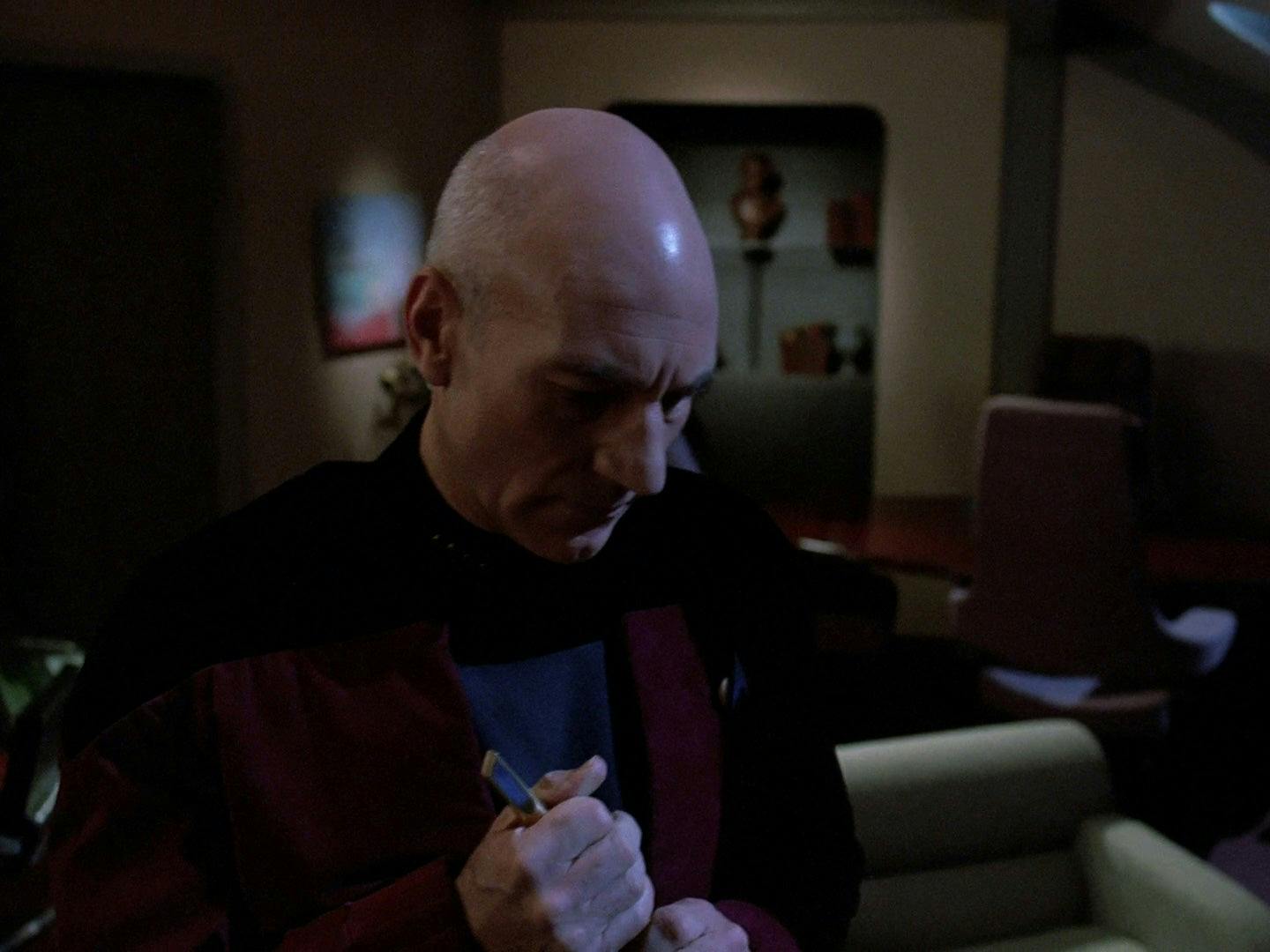
StarTrek.com
In this episode, a mysterious probe latches onto Captain Picard, and forces him to live an entire lifetime on the planet Kataan. Although determined to find his way back to the Enterprise, Picard eventually embraces his life as a husband, a father, and a community member. Your eyes might get a little watery during the final scene on Kataan when the aged captain is surrounded by his deceased loved ones who reveal the true purpose of the probe. He was chosen to keep the memory of an entire civilization alive. His wife Elin, restored to full health, says to him, “If you remember what we were and how we lived, we will have found life again.” The episode closes with Picard back on the Enterprise clutching the Ressikan flute to his chest, a precious reminder of the life he lived. The melody he plays becomes a funeral dirge for the people of Kataan and for hid family. This is particularly tragic knowing that Picard never wanted children or a family, and unless something changes in Star Trek: Picard, he never finds that particular form of contentment again.
Intermediate Level: Neelix is chopping onions in the galley
Star Trek: The Original Series, “This Side of Paradise”
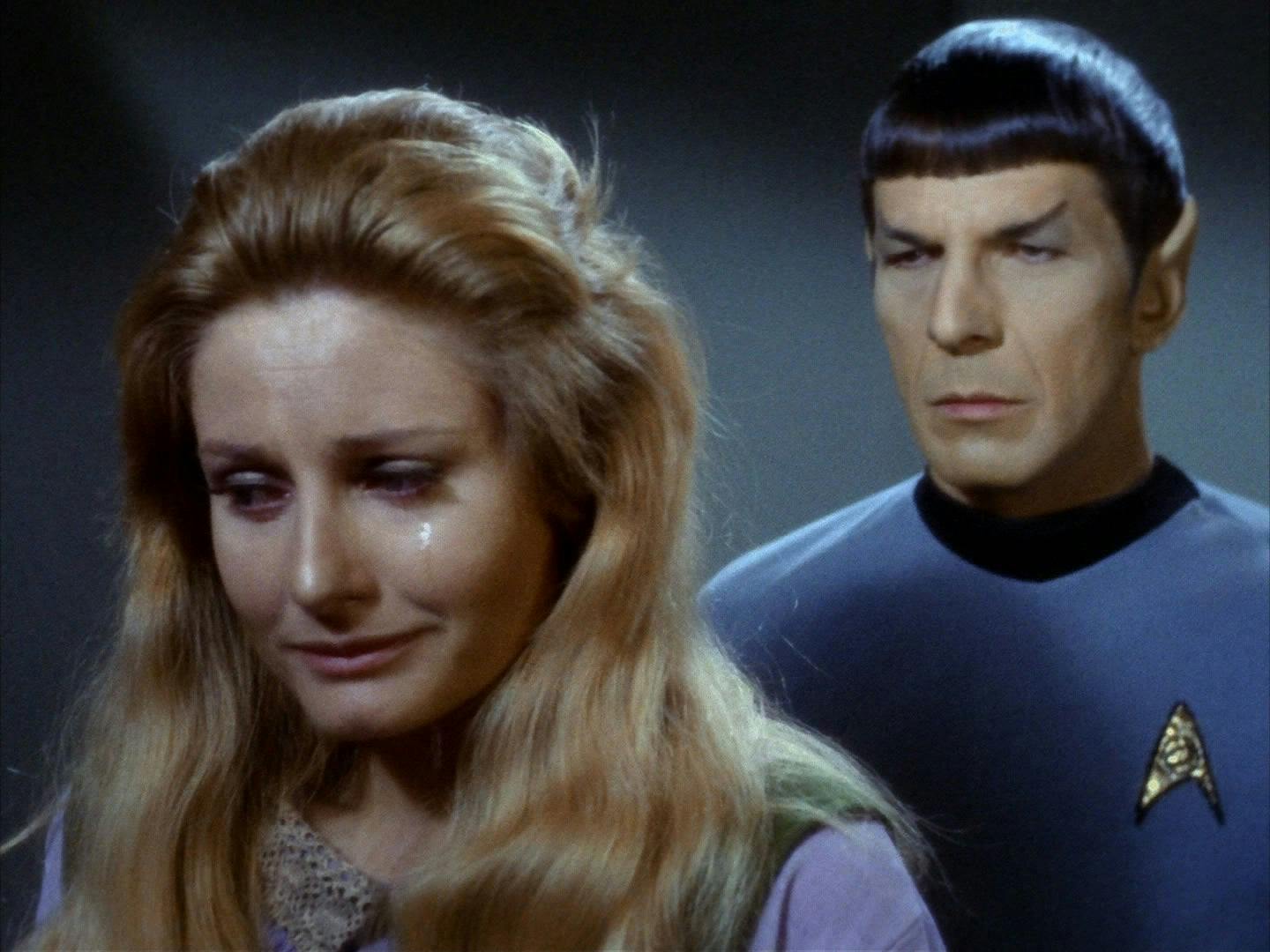
StarTrek.com
Spock loses emotional control when the crew is exposed to spores on Omicron Ceti III, and is finally able to express the love he has for ex-girlfriend Leila Kolomi. When the first officer eventually comes to his senses, the result is one of the saddest breakup moments in the history of Star Trek. When Leila beams aboard the Enterprise, she knows that the Spock who laughed with her and looked at her lovingly is gone. “I have lost you, haven’t I?” Leila asks. Leonard Nimoy’s excellent performance here, a slight slump in his shoulders, a quieter and subdued delivery show that Spock has regained emotional control and regrets it. The episode closes with Omicron Ceti III receding in the viewscreen. As the planet grows smaller and smaller, Spock tells Kirk and McCoy that, “for the first time in my life, I was happy.” If you’re not getting a little misty-eyed at this point, you might be a Borg.
Star Trek: Discovery, “Project Daedalus”
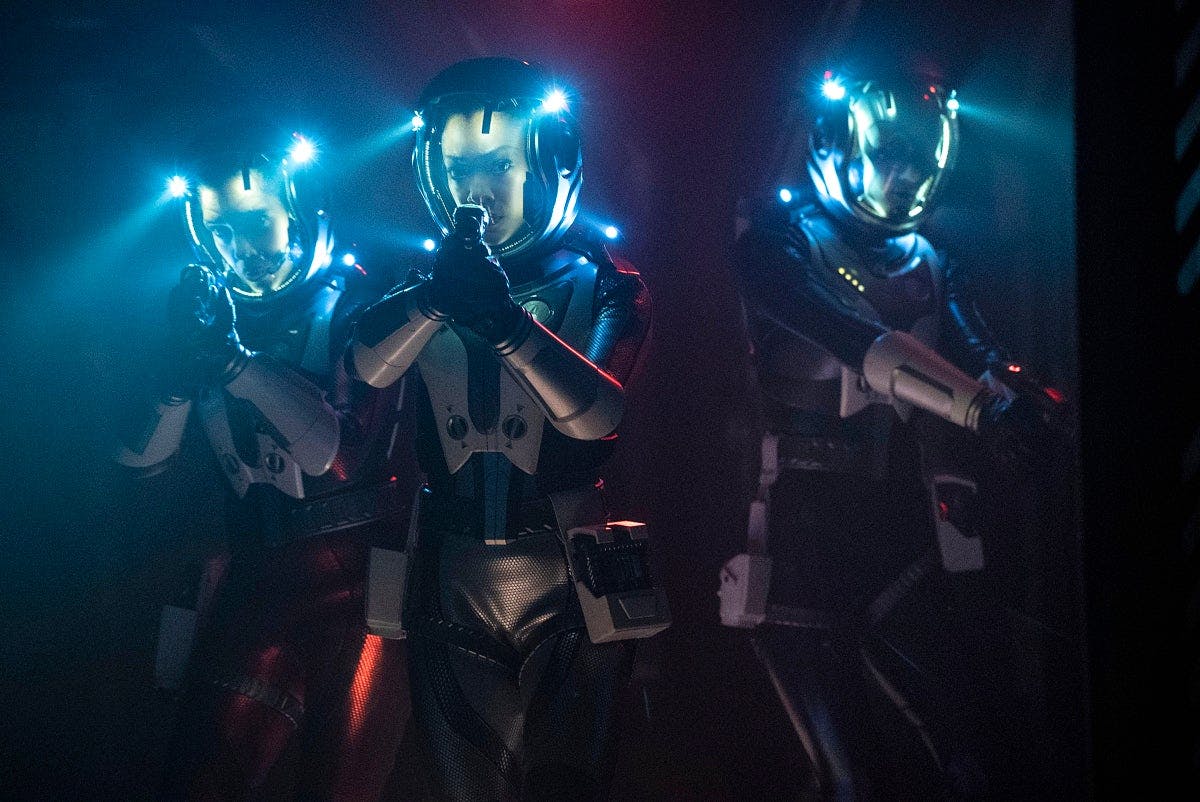
StarTrek.com
The newest installment of the Star Trek franchise loves to bring the waterworks. Star Trek: Discovery has killed many characters, small and large, in its short run. Commander Landry, Captain Georgiou, Dr. Culber... the list goes on. While these characters’ deaths were shocking, none were as emotional as Airiam’s death in “Project Daedalus.”
“Project Daedalus” is intentionally crafted to break our hearts by revealing Airiam’s origin and then killing her. She is human. Her augmentations are due to a horrific shuttle accident that killed her husband days after their wedding. Because of her injuries, she must archive her memories, saving some and deleting others. Deliberately curating her daily moments reveals the deep friendships she has among the crew. This is a lot of backstory for a character whose main job on the bridge was to give the occasional head twitch when the captain barked orders. You know something terrible will happen to her, and it does.
Airiam’s final moments are a true Kobayashi Maru scenario. Unable to stop Control from taking over her body, Airiam begs Michael to airlock her. The tearful crew begs Airiam to marshal her humanity to resist the AI infecting her. Tilly’s tears, the distraught faces of the bridge crew, and Burnham’s shocked expression when her friend disappears into the vacuum of space is enough to make your heart drop. The episode closes with the dying Airiam able to access her fondest memory. She and her new husband are on the beach telling their family, “we’re coming home.” It’s devastating, and if you’re not crying by the end of this episode, your heart may be colder than Control’s.
Star Trek: Enterprise, “Terra Prime”
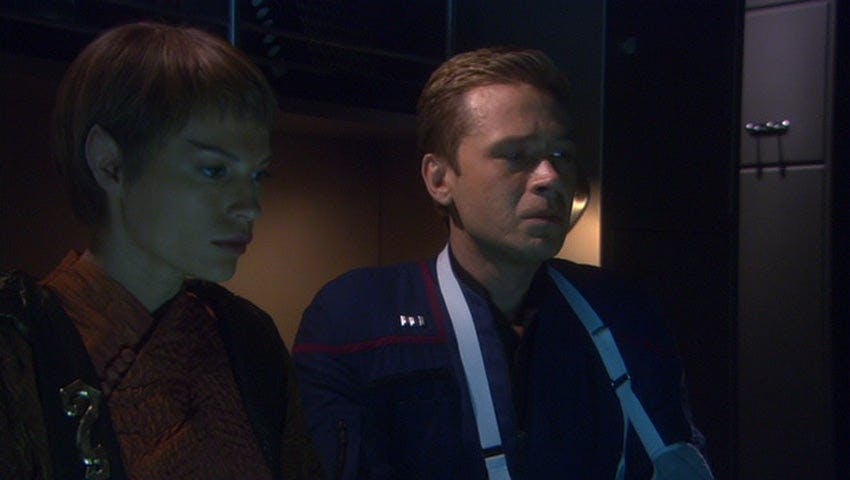
StarTrek.com
In Enterprise’s penultimate episode, Trip and T’Pol discover they have a daughter. The xenophobic terrorist group Terra Prime created the baby girl to prove what an abomination a human-alien hybrid would be. Looks to me like they just created a cute baby, but this is pretty much the last episode of Enterprise, so do your thing, NX-01.
Trip and T’Pol must quickly come to grips with the fact that they’re parents and that their daughter is dying. I dare you not to get a little emotional when, after an entire episode of the baby being called an abomination, T’Pol states firmly, “Her name is Elizabeth.” And if you’re not already crying along with Trip when he comes in to tell T’Pol it’s possible to have a healthy human-Vulcan child in the future, you might be when the stoic Vulcan silently reaches for his hand.
Advanced Level: The environmental controls are making my eyes water
Star Trek: The Next Generation, “The Offspring”
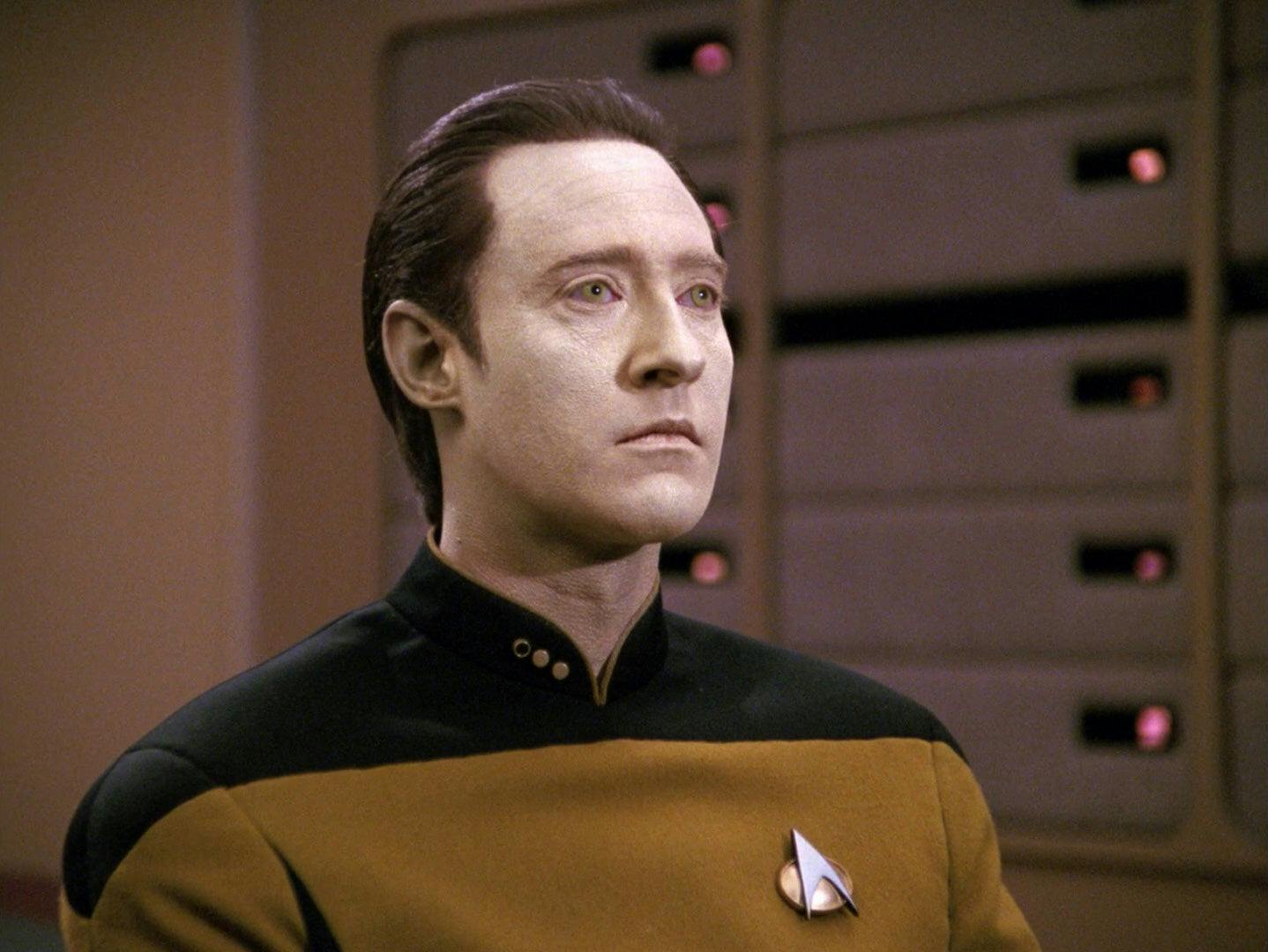
StarTrek.com
“The Offspring” is another episode designed to melt your heart and shatter it into a million pieces. Data creates a daughter, but his experience with parenthood is short-lived. Although Data states that he cannot feel love for his daughter, his actions toward Lal prove otherwise. Data teaches her social interactions, mentors her, and resists Admiral Haftel’s attempts to separate them. Lal excels under Data’s care, even learning contractions and experiencing emotions. These actions paint Lal and Data as an endearing family and make her death all the more heartbreaking. Lal’s last words, “I love you, father… Thank you for my life,” are tragic enough without considering that Data can’t return her love. While Data won’t be brought to tears, you might be.
Star Trek II: The Wrath of Khan
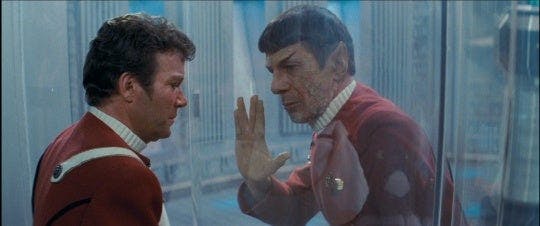
StarTrek.com
Do I even need to explain this one? Spock sacrifices himself at a critical moment in time… when we had no idea if there was going to be any more Star Trek! In 1982, no one knew if the franchise had a future after this film. The film’s ending tries to be hopeful as dawn breaks over Genesis, but you just can’t get over Spock saying, “I am and always shall be your friend,” and the image of a catatonic Captain Kirk sitting on the floor of engineering. This scene coupled with James Horner’s haunting music and Alexander Courage’s theme helped create a sense that this was the last visit to the final frontier.
Star Trek: Deep Space Nine, "The Visitor"
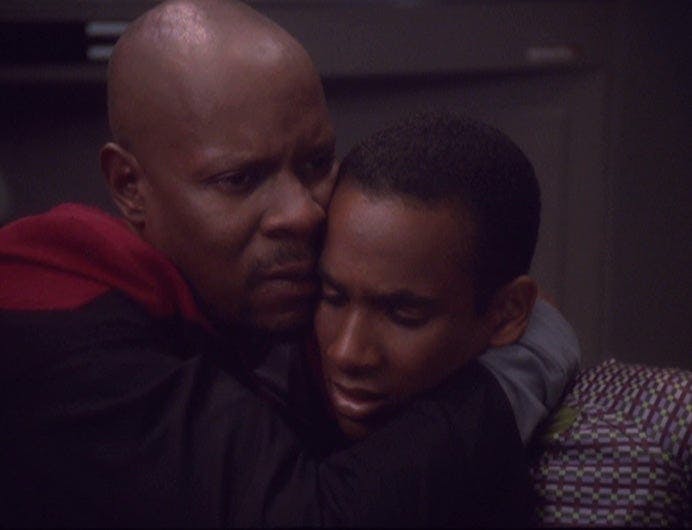
StarTrek.com
If you’re not openly crying throughout this episode, you might be in a coma. Jake Sisko’s life falls apart after his father is thrown into another dimension and presumed dead. It’s heartbreaking to see Jake’s life reduced to wandering aimlessly about the station, though it is heartwarming to see the crew step up as surrogate parents. Actors Cirroc Lofton, Tony Todd, and Avery Brooks convey their pain most effectively when they wordlessly fall into each others’ arms and weep. When an elderly Jake Sisko tells his father he is dying in order to reset the timeline “for you and for the boy that I was,” you will weep too. “The Visitor” is such a poignant exploration of grief simply because it knows that most people would do anything for a little more time with a loved one.
How did you do on the challenge? Don’t be ashamed to cry. There’s nothing wrong with a good katra cleanse.
Matt Cheung (he/him) always wanted to be a starship captain, but since he was born 400 years too early, he became a freelance writer and English professor instead. You can find him in various coffee shops in Los Angeles with a stack of papers to grade.

